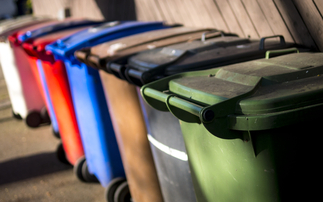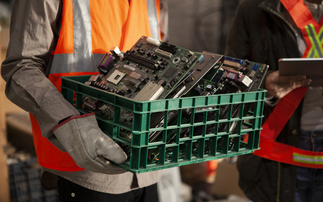Today we celebrate Global Recycling Day, March 18th. It is a day for the world to come together and put the planet first. But it is also a significant moment for us at Dow, as a plastics manufacturer, to reflect on what recycling means for us and our future.
Climate change and environmental degradation are the defining challenges of our time. Industry, policymakers and citizens alike know that now, more than ever, transformational change is urgently needed...
To continue reading this article...
Join BusinessGreen
In just a few clicks you can start your free BusinessGreen Lite membership for 12 months, providing you access to:
- Three complimentary articles per month covering the latest real-time news, analysis, and opinion from Europe’s leading source of information on the Green economy and business
- Receive important and breaking news stories via our daily news alert
- Our weekly newsletter with the best of the week’s green business news and analysis






